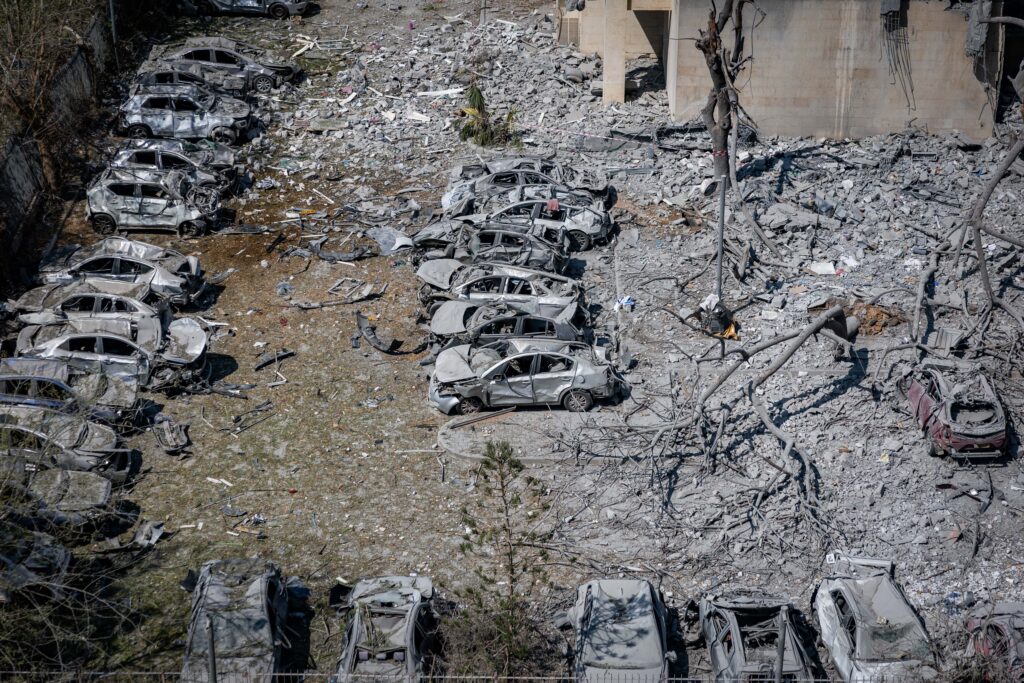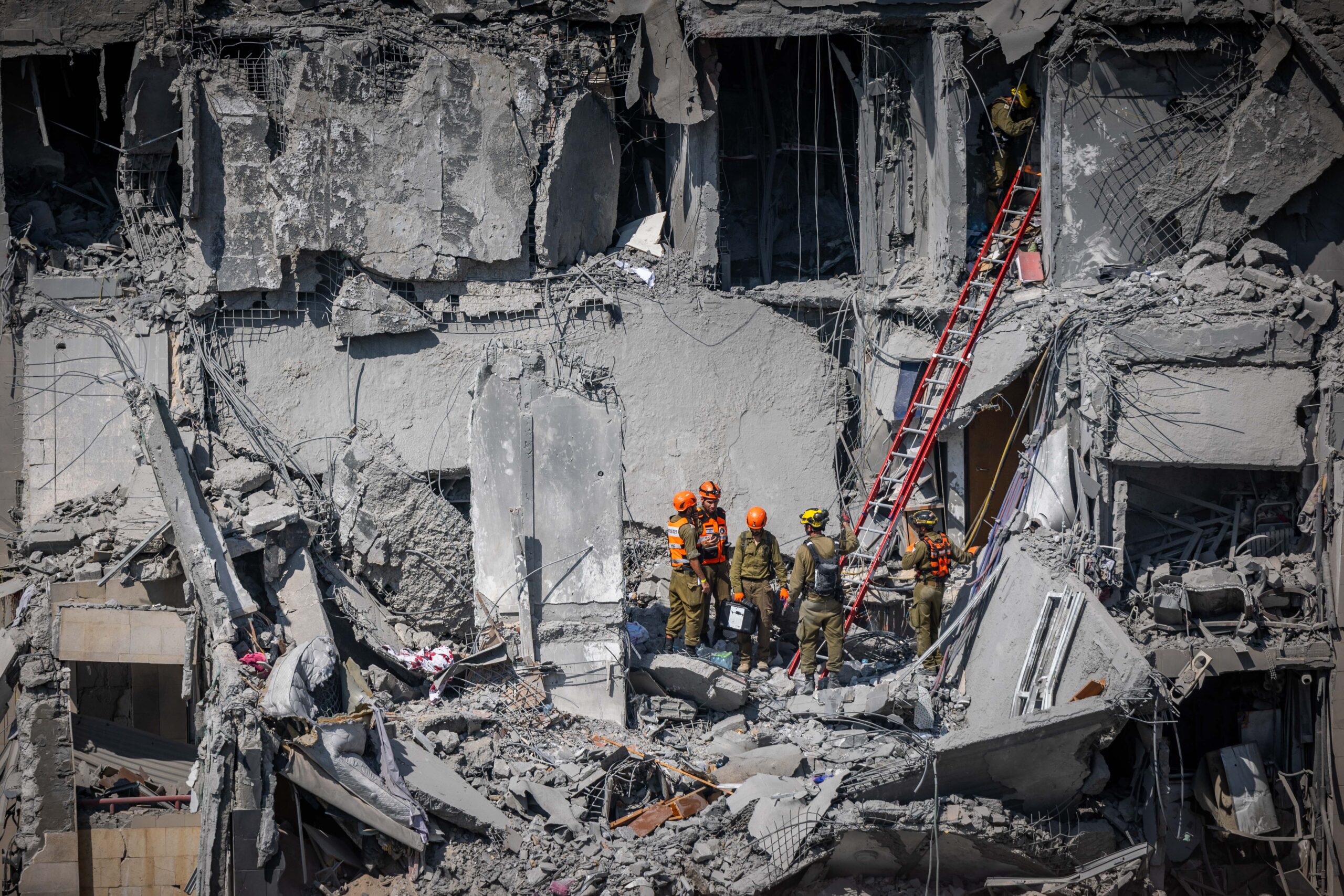Iran Violates Ceasefire with Missile Launch at Northern Israel
Iran launched a missile toward northern Israel early Tuesday, just hours after a ceasefire brokered by the United States was supposed to take effect, Israeli officials said.
Sirens were heard across Haifa and nearby regions shortly after 8 a.m., prompting residents to seek shelter. One missile was launched and intercepted, with no direct casualties reported. Magen David Adom stated that one man was injured while rushing to safety.
This latest attack occurred barely an hour after Israel agreed to a U.S.-negotiated ceasefire, and only three hours after the ceasefire was scheduled to begin at 7 a.m. President Trump had announced the deal the previous night, expressing hope for a halt to hostilities.
Israeli Defense Minister Israel Katz condemned the missile strike as a blatant breach of the ceasefire and authorized significant retaliatory action in Tehran.
🚨 Sirens sounding in northern Israel due to missile fire from Iran 🚨 pic.twitter.com/woGhqD7VCK
— Israel Defense Forces (@IDF) June 24, 2025
“In light of Iran’s clear violation of the ceasefire, and following the policy set by the government, I have instructed the IDF to continue decisive operations against Iranian regime targets and terror infrastructure,” Katz said.
Echoing his remarks, IDF Chief of Staff Lt. Gen. Eyal Zamir warned that any further provocations would be met with force.
Finance Minister Bezalel Smotrich also weighed in, stating that “Tehran will tremble” in the wake of continued Iranian aggression.
Tuesday’s missile fire followed the deadly strike earlier in the day on a Beersheva apartment building, which killed four people and occurred just before the ceasefire deadline.
Four Killed in Iranian Missile Strike on Beersheva
A missile fired from Iran struck a residential building in Beersheva early Tuesday, killing four people and injuring more than 20, according to Israeli emergency responders.
Magen David Adom (MDA) confirmed that two individuals were moderately wounded, and another 20 sustained minor injuries. The Israeli Health Ministry later reported a total of 116 people seeking medical treatment from the broader wave of Iranian strikes—three in moderate condition, over a hundred with light injuries, five suffering anxiety symptoms, and one person still undergoing evaluation.
Rescue operations continued through the day at the scene of the partially collapsed seven-story building, as first responders searched for possible survivors.
The Israeli military reported that Iran launched six separate volleys of missiles—12 in total—between 5 a.m. and 8 a.m. local time. The assault came just hours after U.S. President Donald Trump declared that Israel and Iran had reached a ceasefire agreement, set to begin at 7 a.m.

In response, the Israeli Air Force targeted missile sites in western Iran, attempting to thwart further attacks. The Israel Defense Forces (IDF) also reported intercepting more than 15 Iranian drones overnight, releasing footage of an Israeli Navy vessel downing an incoming UAV.
This missile barrage followed a similar attack on Monday, when air-raid sirens rang across Israel for over 30 minutes. That earlier assault involved roughly 15 projectiles, but no casualties were reported.
Since Israel launched “Operation Rising Lion” on June 13 in response to perceived Iranian threats, Tehran has fired nearly 1,000 rockets and drones at Israeli cities. These attacks have left 29 people dead, dozens wounded, and thousands displaced, with significant property damage reported.
Iran’s Atomic Energy Chief Signals Resumption of Nuclear Program
Iran’s top nuclear official announced Tuesday that the Islamic Republic will move forward with its nuclear program, despite ongoing military tensions with Israel.
Mohammad Eslami, head of Iran’s Atomic Energy Organization, stated in an interview with state-run Mehr News that efforts were made to ensure uninterrupted progress in the country’s nuclear initiatives.
“Preparations were already in place for the program’s revival,” Eslami said. “Our aim has always been to prevent any halt in production or operational capabilities.”
The statement follows recent Israeli airstrikes on Iranian targets earlier this month. Prime Minister Benjamin Netanyahu described the operation as a preemptive move to neutralize Iran’s nuclear and missile threats.
The Israeli offensive, dubbed “Operation Rising Lion,” commenced one day after the expiration of a 60-day deadline for nuclear negotiations between the U.S. and Iran. Talks collapsed after Tehran declared its intent to continue enriching uranium.

Rafael Mariano Grossi, Director General of the International Atomic Energy Agency (IAEA), welcomed the news of the ceasefire between the two nations and said he had reached out to Iran’s foreign minister to restart diplomatic discussions.
“Resuming cooperation with the IAEA is crucial to resolving this long-standing issue,” Grossi wrote on social media, noting he proposed a meeting to move discussions forward.
However, shortly after the ceasefire was announced by President Trump, Iran launched additional rocket attacks on Israel, including the fatal strike in Beersheva. In response, Israeli officials confirmed new military operations were underway in Tehran, calling Iran’s actions a “serious violation” of the agreement.






